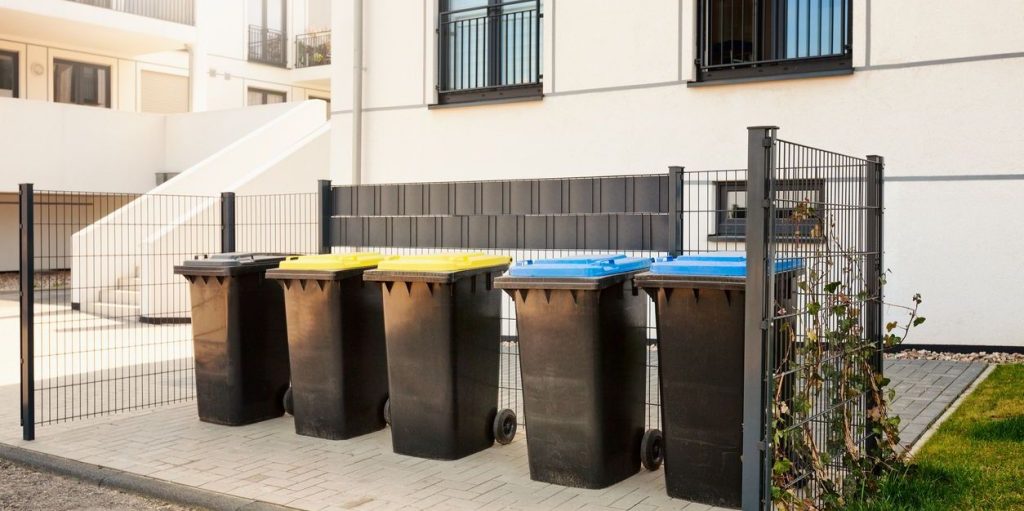Strata by-laws (also known as building rules in Victoria) play a critical role in helping residents and owners co- smoothly in body corporate or owners corporation properties. They are designed to establish a set of clear parameters and rules for day-to-day governance of a scheme. This can include rules around acceptable behaviour or guidelines for activities such as renovations, parking, noise control, and pet ownership.
Both owners and tenants are responsible for adhering to these terms and potentially enforcing them in some circumstances. This shared responsibility maintains balance within the community. However, violations of strata by-laws or building rules can occasionally disrupt your community or pose a risk or hazard.
Each scheme must establish an agreed set of governance protocols that outline how to handle and enforce by-law or building rule compliance matters consistently and equitably. This can range from a complaints-based process to a proactive monitoring regime.
Breaches in a scheme’s by-laws or building rules can escalate into formal disputes and complaints within strata communities, which can involve mediation, orders of the tribunal or enforcement action, including financial penalties.
Reviewing your strata by-laws or building rules is the first step to managing disruptive behaviour. These guidelines provide the foundational standards of behaviour expected from all residents in a body corporate or owners corporation property. Understanding the respective rights and responsibilities may help you identify and manage violations that might disturb the peace in your community.
These guidelines set the stage for the standard of conduct that all residents should follow while living in a body corporate or owners corporation property.
Some common breaches could include things like:








Generally, the committee or landlord would provide the property’s by-laws or building rules to new tenants and owners moving into a body corporate or owners corporation. However, if you have issues locating this document, a copy can be requested from the strata manager, committee, or the relevant government body for which the scheme is registered. Below are some quick tips on how you can access these documents for your state outside of your scheme’s books and records.
A copy of the registered by-laws can be obtained through a strata plan search purchased from the NSW Land Registry Services – approved information broker.
By-laws can be found within the community management statement, which can be purchased through a title search on Titles Queensland.
Owners in Victoria can access their owners corporation rules by obtaining a copy of the registered rules from Land Use Victoria by conducting a plan search.
A copy of the registered by-laws can be obtained from the Registrar-General by searching for the unit title scheme at the Land Titles Office.
Owners in Tasmania can purchase a copy of their strata by-laws from the Recorder of Titles by conducting a strata plan search.

If someone breaks by-laws in your strata property, start by having a friendly, honest conversation in the same manner you should if you resided in a free-standing home and needed to engage with your neighbour. Open communication can help in most cases.
Whether your neighbour is violating parking rules, being noisy, leaving their pets unsupervised or hosting unruly guests, you can always let them know how their actions affect you and other owners. They may simply be unaware that the consequences of their actions are in breach of by-laws. An open and polite conversation also ensures any kind of formal letters or other actions do not come as a surprise or without notice to the persons concerned.
Remember that not everyone may be receptive or agreeable despite your best efforts, and issues can escalate into disputes. In such cases, collective action might be more effective. If someone’s behaviour affects the community, you can consider formalising your concerns to the committee and strata managing agent, or bringing up the issue at a general meeting when necessary.

Suzie often falls asleep at night in front of her TV, which is mounted to the wall. Since she is partially deaf, she has the volume up loud to compensate. Her neighbours have complained that the TV is often on until 3 AM, which disturbs their peaceful enjoyment of their property. After the discussion, Suzie and her neighbour agreed that she would set a timer to turn off her TV at 11 pm
Sometimes, a conversation can resolve issues quickly, while other circumstances may require more help. If direct communication isn’t doing the trick, consider raising the issue with the committee via your strata manager, who may be able to assist in providing a different course of action for the situation or, when necessary, issue more formal correspondence to the persons concerned.
Having an unbiased, fair party negotiate matters with empathy and transparency can help solve issues in the long term, and they may already have a strategy to deal with conflict. In addition, this request could also provide additional evidence to support potential dispute cases down the track. However, it’s important to note that not all disagreements will be solved by the committee in situations where there is insufficient evidence or if they don’t find the issue suitable for their intervention.
Your strata manager or committee’s first course of action before issuing notices could be:
Governance Protocol – having an established protocol that deals with the receipt, consideration and assessment of by-law or building rule breach complaints is an important mechanism to ensure all issues are considered consistently and equitably within your community.

Explain the by-laws or building rules to the offender and make them aware of the effects of breaching by-laws or building rules.

A polite reminder letter, email, or notice can be sent to the community as a reminder of their compliance obligation with the by-laws or building rules.

Suzie's neighbours can still hear the TV late into the night as she decides she doesn't want to change her lifestyle and never uses the timer. They requested that the committee approach her as residents are being kept awake by the loud noises late at night. She confirms that she wants to be able to watch TV loud late into the night but, as a compromise, agrees to buy a sound bar that removes the noise from the wall.
If by-laws or building rules are breached intentionally and continuously, consider keeping a record of the incidents. If the behaviour continues and requires escalation, gather as much evidence as possible.
Collecting time-stamped evidence is especially useful for pinpointing accountability and supporting your case if the matter escalates. For example, a photo or video of a car parked incorrectly on common property can be far more effective than general hearsay.

Visual evidence of the breach.

Written records detailing the date, time, and nature of the breach.

Accounts from other residents or committee members who observed the breach.
Furthermore, records should also include supporting information like:

The person(s) involved.

How it occurred.

The nature of the breach.

When did it happened.

What happened.

How long it has been happening.

The date and time of resolution attempts.
All owners and occupiers in a strata scheme, including tenants and visitors, are legally obliged to comply with the scheme’s by-laws. When verbal warnings fail, a written complaint should be submitted to the owners corporation or body corporate to inform them of the ongoing problem.
Depending on the dispute process, a formal building rule or by-law breach notice would be issued to the offending party. This notification should be addressed to the tenant for rentals, and a copy should be provided to the owner and property manager.
Owners or their agents can contact the owners corporation to request further action to address the breach of strata by-laws. This can include initial letters referred to as breach notices, which seek the resident’s immediate and ongoing compliance with the terms of the relevant by-laws.
If the initial breach resolution measures were ineffective, the owners corporation could provide the with a formal notice to comply. To issue this, a motion needs to be resolved at a committee meeting and approved by the secretary.
NSW Fair Trading also provides free mediation services to help strata residents and committees handle unresolved issues. If the by-law breach continues, the scheme can seek financial penalties for the breach via the NSW Civil and Administrative Tribunal for 12 months following publication of a notice to comply.


Suzie never buys a sound bar and continues to play her TV loud until the early hours of the morning. Her neighbours are suffering from constant interruptions to their sleep. The strata committee has sent several emails, but she continues to ignore their requests. They consult with their strata manager, who then issue Suzie a formal notice to comply.
If all verbal warnings and formal notices are being ignored, the owners corporation or body corporate can refer to the state tribunal governing office or court to escalate the issue further. They may be able to issue fines and penalties depending on the seriousness and frequency of the offence.

If the conflict or problem continues and the strata committee cannot stop it, the next step is usually to escalate the issue to Fair Trading for mediation. This can be done before or alongside issuing a notice to comply. If this fails, you can apply to the NSW Civil and Administrative Tribunal (NCAT) for either post-mediation orders or financial penalties for non-compliance.

After issuing a contravention notice, the body corporate can enforce a by-law further by either applying for dispute resolution with the BCCM Office or having a fine applied at the Magistrate's Court QCAT can hear appeals of adjudicators' orders. They do not deal with by-law enforcement.

If a breach of by-laws cannot be resolved through the owners corporation, Consumer Affairs Victoria can help with mediation. If this also fails, you may be able to apply to the Victorian Civil and Administrative Tribunal (VCAT) to help.

If violations persist, an application can lodged to the local court for further intervention. Disputes can also be heard at the Northern Territory Civil and Administrative Tribunal (NTCAT).

If violations persist, an application can lodged to the local court for further intervention. Disputes can also be heard at the Northern Territory Civil and Administrative Tribunal (NTCAT).
Regular reviews and updates to strata by-laws or building rules are vital to maintaining harmony and reducing breaches within a community. These updates help address potential gaps, cater to changing resident needs, and ensure continued relevance.
If there’s a belief that an existing by-law is irrelevant, outdated, unfair, impractical, or unlawful, motions can be proposed to repeal or amend it. Adding or changing building rules and by-laws starts by raising a motion with the committee secretary or the strata manager. Similarly, if the committee or an owner believes the scheme would benefit from the introduction of a new by-law, the first step is to make a suggestion to the committee via your strata committee or the secretary.
Once a new or existing by-law or building rule has been amended or drafted, this would then be added to the agenda of a general meeting, which must be held where the owners will vote to approve, revoke, or amend the building rule or by-law. The resolution required to pass these changes depends on the situation and state.
However, it is important to remember that when changing by-laws or building rules, they:
Specialised strata management legal services such as Kemps Petersons Legal (NSW only) can help provide assistance with by-law drafting, updating, registering, and consolidation for owners corporations.
Newly adopted by-laws or building rules must be registered with each state within a certain period or process. Once a new rule has been registered, the committee will need to update all owners and residents of the change so they can stay abreast of the latest by-laws and building rules.

New or amended by-laws must be registered with the NSW Land Registry Services within six months of drafting them.

The body corporate must register the new by-laws with the Titles Registry Office within three months of passing the general meeting motion to change the by-laws. Otherwise a future contravention notice (BCCM form 11) to address issues that are likely to be repeated.

Any changes to building rules can be approved after the owners corporation passes a special resolution to do so and then subsequently lodges a copy of the new consolidated rules with Land Use Victoria.

Under the Unit Titles Act 1975 and Unit Title Schemes Act 2009, amendments to by-laws do not come into effect until it is certified by the scheme's supervisor and registered with the Registrar-General.

A body corporate can create, amend, or rescind by-laws via an ordinary resolution, which will come into effect after it is registered to the Recorder of Titles within three months.
Breaches of strata by-laws or building rules can occasionally trigger emergencies requiring immediate response, particularly when they pose serious risks or hazards. In such situations, quick, effective action is crucial to manage and mitigate potential risks and hazards.
When faced with emergencies, assessing whether the breach warrants immediate escalation is important. Minor hazards that do not pose an ongoing risk can typically follow standard breach and dispute processes. However, violations posing a real and dangerous threat to residents demand immediate action, especially if they occur on common property.
All residents within a body corporate or owners corporation need to be ready to handle these situations. Remember that there could be instances where professional help is needed urgently. For example, if the breach poses a severe danger, a threat or raises concerns for personal safety or the well-being of others, emergency services should be contacted immediately.
Below are some actions that owners, owners corporations or body corporates can do for emergencies:
Depending on the property’s strata management provider, support services may be available to help owners corporations and body corporates manage emergency risks and hazards on common property such as:
Before renewing your agreement, take a moment to compare your options. Our quick and easy form can be completed in less than 30 seconds.
Effectively addressing and preventing breaches of strata by-laws or building rules requires a structured, communication-centric approach prioritising compliance. To help maintain a peaceful community environment, body corporates and owners corporations need to cultivate a culture that values fairness and emphasises the significance of adhering to by-laws and building rules.
One effective method is utilising different communication channels to educate residents about the importance of rule compliance and the potential consequences of breaches.
By implementing these steps, owner corporations and body corporates can address rule violations fairly and in an orderly manner, assisting in the smooth operation of their community.
If you’d like to find out more about managing by-laws for your strata property, download your free Community Living guide on by-laws and building rules here. Or for a consultation to review your by-laws by our Kemps Petersons Legal team, click here (NSW only).
This article is edited by Lauren Shaw Regional General Manager and Licensee-in-Charge on August 2024.

Head office
Level 27, 66-68 Goulburn Street, Sydney, NSW 2000

Monday - Friday, 8:30 am - 5:00 pm